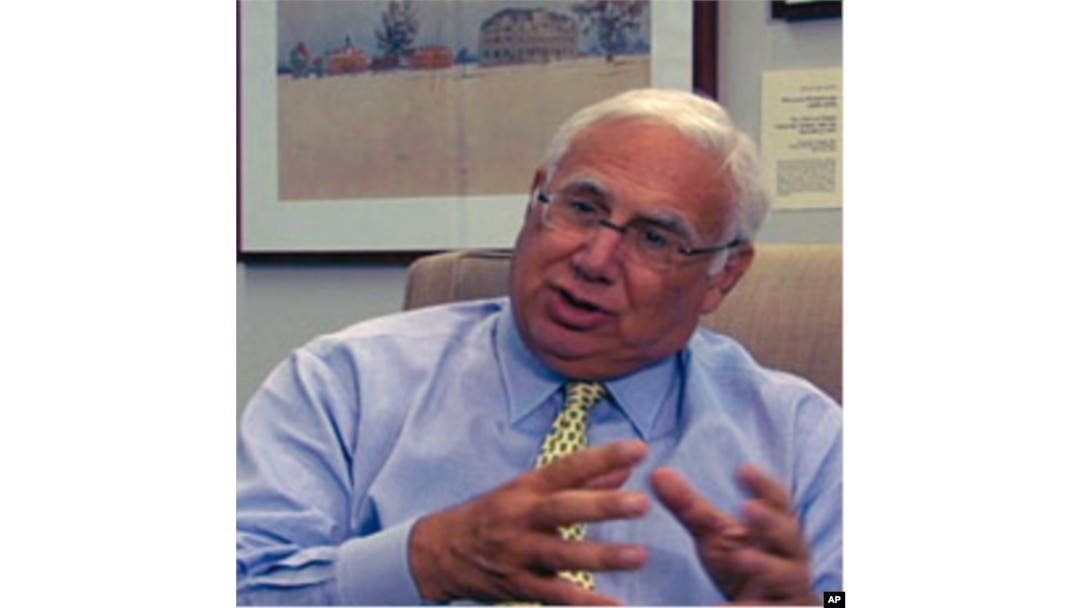As New Orleans looks back to the tragedy the city experienced after Hurricane Katrina five years ago, local officials and community leaders are giving special praise to the role played in the recovery by one of the city's crown jewels - Tulane University. Tulane President Scott Cowen is determined that the university remain involved in rebuilding a city he says is irreplaceable.
Tulane University was just starting its fall semester when Hurricane Katrina struck five years ago and flooded 70 percent of the main campus. Many people feared that Tulane, one of the most prestigious private universities in America, might take a year or more to re-open. But University President Scott Cowen was determined to get faculty and students back as soon as possible and Tulane was up and running for the next semester.

Tulane University President Scott Cowen
In a VOA interview, Cowen said students not only came back to study, but they have also continued to help restore the stricken city .
"They volunteer, every year, hundreds of thousands of hours, hundreds of thousands of hours, to the recovery of this city. We have, at any moment of time, literally 200 or 300 faculty, working on various projects in the city with their students," he said.
This idea of studying in a city where you can also perform significant community service has a strong appeal to students around the country seeking a college education. Cowen says that before Katrina hit five years ago, around 18,000 people applied for the 1,500 undergraduate slots available at Tulane each semester. This year there were 44,000 applicants, the highest applicant pool for any private university in the United States.
Cowen says Tulane's role in the city's recovery is a big draw.
"Come to New Orleans, you get the experience of New Orleans. You continue to get the first class education at Tulane that you always would have gotten, but there is a third element, we will get you engaged in a community in ways that other universities would not be able to do," said Cowen. "You are going to get a sense of satisfaction, gratification, out of that that is going to stay with you for a life time."
Other universities in the New Orleans metropolitan area are also engaged with the community, but Tulane's size and stature have made its contribution especially important. The return of its 11,000 students and more than 1,000 faculty and staff members in that critical period just a few months after Katrina gave the city a big boost in population, money and spirit.
Scott Cowen says he has seen a lot of progress in the past five years, especially in areas that were problems even before Katrina. In a way, he says, the hurricane gave New Orleans an opportunity to deal squarely with some of its long-standing problems.
"The fact of the matter is that before Katrina we had a lot of problems. We had problems with health care, we had problems with public education. We had problems with blighted neighborhoods and we were not making progress in trying to address these particular issues," Cowen said. "When the storm came it basically gave us a clean slate, and we were forced, because there was not any choice, to begin to think about new solutions to some of the intractable issues we had as a city."
Many of those problems remain, according to a recent report by the Brookings Institution the poverty rate remains at around 23 percent; the national average is 13 percent. Income disparity is also an issue. Blacks, according the the Brookings report, earn incomes 44 percent lower than whites.
Housing remains a problem, especially for the poor. Before Katrina, many people lived in low-rent houses or housing projects, many of which are now gone or in such disrepair as to be uninhabitable. About 4,000 poor residents remain without permanent housing.
But Cowen, who served on the steering committee that produced the Brookings report, says there has been significant progress on many fronts. He says that the quality of life in New Orleans has improved. Average wages are higher, poverty has been reduced, there is better access to education and health care, and more entrepreneurship.
While more than 40 percent of New Orleans public schools remain in the category of "underperforming," according to the state of Louisiana, Cowan says projects aimed at boosting education in the city are gaining ground and test scores are improving.
The federal government recently gave the city $1.8 billion for school reconstruction, and the U.S. Army Corps of Engineers is continuing work to reinforce levees so the low-lying city will be protected from future storms.
Above all, Cowen says, it is important for people all around the country to understand that saving New Orleans is not just a local issue. The Tulane president says the city is a national treasure, full of character and characters.
"It is a city of characters and it has such a distinct heritage. New Orleans is the only city I know of in the United States that can lay claim to its own music, its own food, its own language and its own architecture. All of those things that have always been magnets for people to come to New Orleans are still here in abundance," said Cowen.
Scott Cowen has been president of Tulane University since 1998 and, since Katrina, he has served on the city's Bring Back New Orleans Commission.

